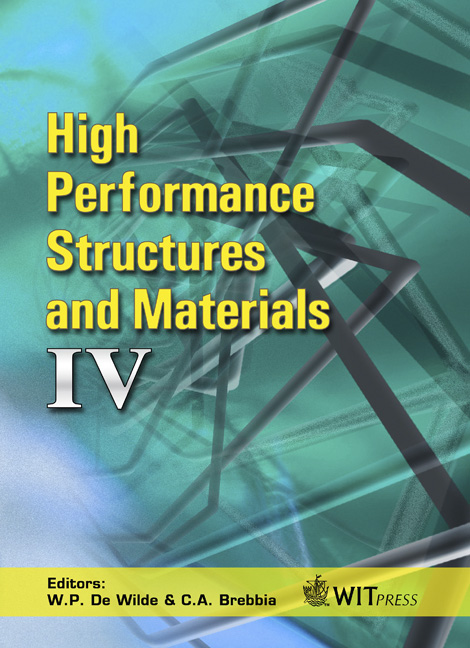Flexural Properties Of All Bamboo \“green” Composites
Price
Free (open access)
Transaction
Volume
97
Pages
7
Page Range
167 - 173
Published
2008
Size
288 kb
Paper DOI
10.2495/HPSM080181
Copyright
WIT Press
Author(s)
H. Takagi, A. Mizobuchi, K. Kusano & Y. Okitsu
Abstract
This paper deals with the development and evaluation of environment-friendly composites that are composed of only bamboo. Japanese timber bamboo (Madake) is hot pressed in order to increase its mechanical properties, such as flexural strength and impact strength. The hot pressing conditions are varied from room temperature to 220°C. The flexural strength, flexural modulus, compressive strength and Izod impact strength increase with increasing the moulding temperature up to 160°C, showing the maximum peak values. The effect of moulding pressure on the mechanical properties is smaller than the effect of the moulding temperature. Extensive densification in both the vascular bundle and parenchyma cell regions is achieved by hot pressing and this increase in density results in the increased mechanical properties. Keywords: green composites, natural fibre composites, bamboo, hot press, densification, flexural strength, impact strength. 1 Introduction Bamboo is recognized to be a high-strength and flexible natural material from the viewpoint of industrial materials [1–3]. Since the bamboo has a hollow structure with joints, it is has been applied to fishing rods, flagpoles and scaffold materials. In addition to that, the growth speed of bamboo is much faster than that of woods, for example it reaches 15 to 20 m in height within only one year. Therefore rapid environmental repair after extensive cutting is possible in a shorter period than with wood, which requires many years for regeneration. Therefore, the potential of bamboo to be a sustainable engineering material has been anticipated in recent years in Japan.
Keywords
green composites, natural fibre composites, bamboo, hot press, densification, flexural strength, impact strength.





